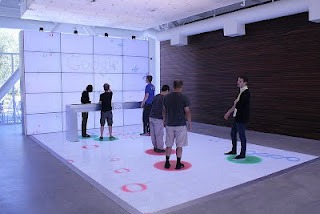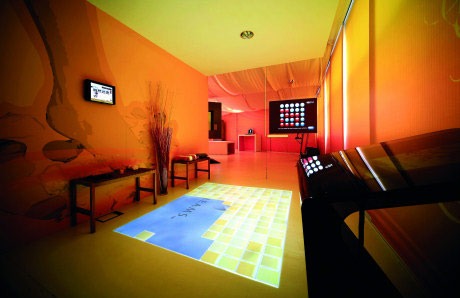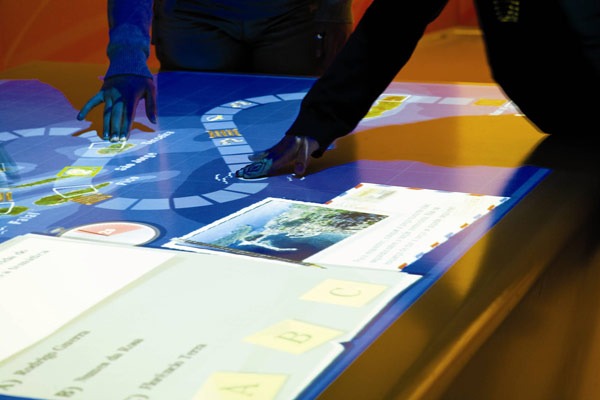Gaming is fun, but its even more exciting when it social and Physical. Why did Kinect get all that fame?
When games step of of the monitor screens, it no longer limited — fun begins. What if you can play games that are built using nothing but the space around you. Your room, your hall gets transformed to Game Arena with technologies like Interactive Spaces.
Interactive Spaces are physical spaces which can interact with their occupants in some way. To do this, the spaces will contain two types of objects. Sensors, things like push buttons, keyboards, pressure sensors, and cameras to be able to tell something about the space’s occupants, and what they are doing. Effectors can then respond in some way. Examples of effectors could be anything from putting something on a video screen, moving a physical arm, or turning on a light.
The Interactive Spaces framework is both a collection of libraries for writing activities in the physical space and a runtime environment which will run these activities and allow you to control them. The system has been designed so that you can start with relatively simple activities where Interactive Spaces is doing most of the work, but can get as advanced as you want. Hopefully peeling that onion won’t bring too many tears to your eyes.
A simple example of an event producer would be a pressure sensor under the carpet signaling that someone has stepped on it. A more complex event might include the use of a depth camera whose events would give the angles of all the joints of the person it is tracking.
Google has Open Sourced Interactive Spaces, a software framework that gives the programmers the ability to create interactive experiences in physical spaces. Possibilities are endless, one can build interactive art installations or games that involve physical interaction.
From programming perspective, Interactive Spaces is implemented primarily in Java, but is extensible enough to be bridged with scripting languages like JavaScript and Python. The framework provides a high-level architecture for building “activities” that respond to events in a room.
One of the practical applications of Interactive Spaces is described by Google using a ceiling-mounted camera that cameras track the position of individuals in a room. The spot lighting system then comes into action and displays colored lights on the floor at the place where individual are located.
There are cameras in the ceiling which are doing blob tracking, in this case the blobs are people walking on the floor. The floor then responds to the blobs by having colored circles appear underneath the feet of someone standing on the floor and then the circles follow that person around.
Interactive Spaces works by having consumers of events, like the floor, connect to producers of events, like those cameras in the ceiling. Any number of producers and consumers can be connected to each other, making it possible to create quite complex behavior in the physical space.
Although, this is a basic example, it can be extrapolated to creative a Real-life Interactive and immersive game with real life objects and spaces. e.g. You can play a real life FPS (first person shooter) with model guns. Just point and click, the damage will be done.
Google is looking for innovation to come in from the Open Source community, but it doesn’t stop there. Google will continue to expand the Horizon of Interactive Spaces by adding new features like support for Processing, a popular programming tool for generating art and graphical presentations.
With addition of Processing, developers would be able to create sophisticated visualizations that people can interact with in a physical space.
The concept is amazing and scope is wide. Hopefully developers would use this apache licensed framework to create wonders.
The code is available at Google Code, via mercurial.
We write latest and greatest in Tech Guides, Apple, iPhone, Tablets, Android, Open Source, Latest in Tech, subscribe to us @geeknizer on Twitter OR Google+or on Facebook Fanpage:
loading...
loading...




Cool article, just one correction: “When games step off* of…”
It was bugging the hell out of me.
loading...
loading...
Actually, there are other typos, but I’m sure you will notice them, lol.
loading...
loading...